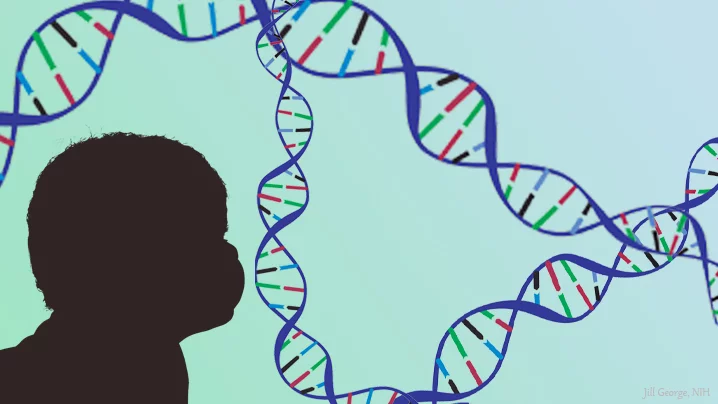Monday, October 9, 2023
Promising Brain Assembloids Advance Genetic Understanding of Neuropsychiatric Disorders
Tuesday, November 30, 2021
Understanding Genetic Factors that Leave People at Risk for Suicide
Trigger Warning/Content Warning
This article discusses heavy topics like suicide. This may be a sensitive topic to some readers so please continue reading at your own risk. If you (or someone you know) are in crisis, please call the National Suicide Prevention 24-hour Lifeline at 1-800-273-TALK (8255), or contact the Crisis Text Line by texting TALK to 741741, or visit their website at https://suicidepreventionlifeline.org/.
Suicide is an unfortunate epidemic that accounts for about 800,000 deaths per year. Non-fatal suicide attempts occur more than 20 times for every death by suicide. Since suicidal thoughts and behaviors can be lessened with mental health support and treatment, it is imperative that we understand the biological pathways involved so we can provide better treatment and prevention strategies. In a worldwide genome-association study, scientists scanned more than 7.5 million common variations in the DNA sequence of 550,000 people. Of that group, roughly 30,000 of them had made a suicide attempt. They discovered a region on chromosome 7 with DNA variations that increased the risk a person might attempt it.
The risk location had a strong overlap in the genetic basis for suicide attempt and psychiatric disorders like major depression. There were some overlap in the genetics associated with smoking, pain, risk-taking, sleep disturbances, and overall poorer general health. The overlap with these non-psychiatric risk factors turned out to be unchanged when adjusted for psychiatric disorders; meaning that suicide attempt is not a result of non-psychiatric disorders, but that the biology between the two factors are shared. This study lays the foundation for future research in identifying genetic risk factors in other area of the human genome. Understanding the biological pathways involved in suicide means that better treatment and prevention strategies can save others from this tragedy.

